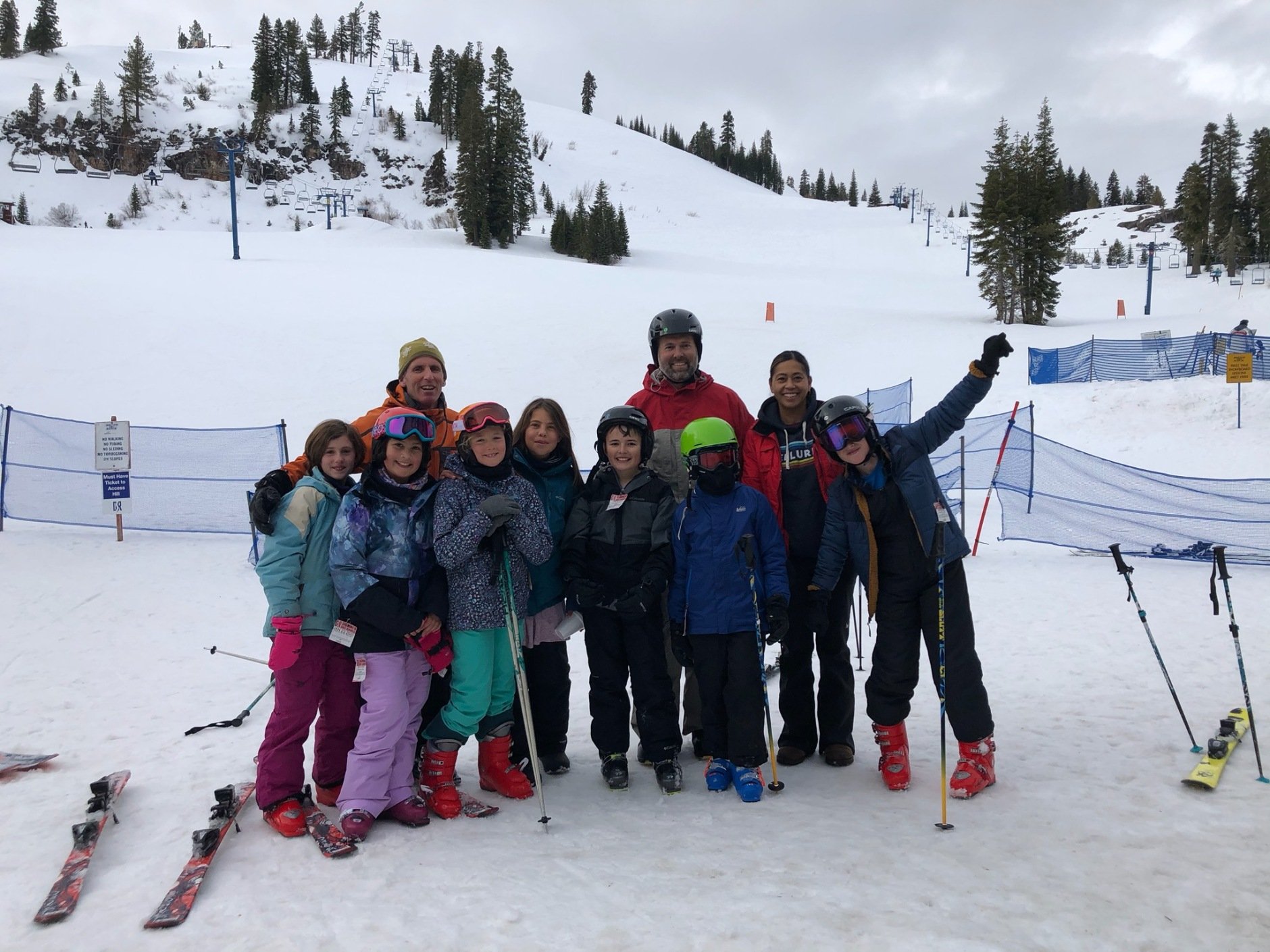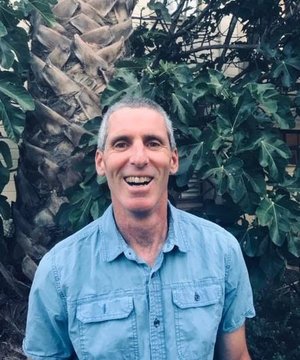Meet Adam Stopeck: Philosopher, Singer, Skier, Sixth-Grade Teacher
A native East Coaster, Adam Stopeck met his life’s calling as a Waldorf teacher (and his future wife!) on a chair lift in Colorado. He joined MWS last year after decades as a class teacher in Carbondale, Colorado, and Vancouver Island, British Columbia, taking the lead in our now-6th-grade class. Read about his early days as a basketball aficionado, ski bum, and would-be Socrates, and what he loves about teaching the grades in the interview below.
Tell me a little bit about your background.
I was born and raised in Oceanside, Long Island. My mom was a piano teacher for five decades, and I’m sure that’s where the teaching gene came from.
Did you play the piano?
I did play the piano, but I was more drawn to playing basketball. In a very un-Waldorf way, I didn’t think I could do both. It was a very traumatic day for my mom the day I gave up the piano.
What’s Oceanside like?
Classic, uninteresting suburbia but it was only ten miles from the beach. Those were some of my fondest memories as a young child, endless days playing at the beach. Much of my early adolescence was filled with playing sports with the neighborhood kids. When I was 14, I went skiing for the first time in upstate New York and I was hooked. After a family ski trip to Colorado, I knew I wanted to go to college in Colorado and I eventually wound up at the University of Colorado at Boulder.
What was your experience like in university?
I really thought I was going to ski a lot but it was expensive, crowded, and difficult to get to the mountains. What I really became enamored with was philosophy. I really thought I was a young Socrates, going around most of the day asking people, “Let me ask you a question?” My great quest for knowledge and wisdom eventually landed me on a ski lift in Aspen, Colorado, where my life took a dramatic turn. After ten year of “ski bumming” in Aspen as a ski instructor, ski patroller, bike guide and, of course, dishwasher, I met my future wife. Where else but on a chairlift!
By some strange happenstance, she was the first grade teacher and one of the founding teachers at the Aspen Waldorf School. We began dating and she started inviting me to lectures at the school. Eventually I listened to a lecture by Eugene Schwartz and he said that “Waldorf education is a revolution in education.”
The word revolution sparked something laying dormant in me from my “angry young radical” college days. A week later, after ten years of living in the mountains, I suddenly found myself in Sacramento, doing Eurythmy at the Rudolf Steiner College. That was a shock! I eventually wound up doing a three-year, full-time teacher training. My now-wife came out and joined me and we supported our Rudolf Steiner college habit by running the food program there.
Did you begin teaching right after that?
By that time, the Aspen Waldorf School had moved down the valley to Carbondale. Now it’s the Waldorf School on the Roaring Fork, and that was the first place I taught. We were there for close to a decade.
Later, when I had three young children—they were 4, 3, and 2—we had this crazy idea, “Maybe we should move to a foreign country and teach at a Waldorf school ?” After pipe-dreaming about Switzerland and Germany, we moved to British Columbia, Canada and settled on Vancouver Island. My wife and I were both Waldorf class teachers at the Sunrise Waldorf School in Duncan, British Columbia. It was an amazing place for the kids to grow up. They spent countless hours romping around the woods, climbing trees and swimming in the endless lakes and rivers.
In B. C., I took a class from 1 to 8, which was something I had always wanted to do. It was an incredible journey. Taking a class 1 to 8 is not for the feint of heart. I really believe that for it to happen in a meaningful way, the stars need to align for the teacher and the students. Maybe even more so for the teacher and the parents!
How did you end up in the Bay Area?
After I graduated my 8th grade class, I took a first and second grade. But we really wanted a Waldorf high school for the kids, so we moved here. They all went to Credo. That brought us back to the U.S. after a decade in Canada.
Are all your kids still in the area?
My youngest son is a senior at Credo. My oldest son and middle child, is a sophomore at La Verne University in LA and my daughter is a sophomore at Quest University in Canada. My wife still teaches part time, as a painting teacher to high school students and adults at Credo, as well as her full time job, as a Chocolatier.
When you graduate your 8th graders in a couple of years, and your son graduates from Credo, what’s next? Are you off to a new adventure?
“I’ve been everywhere” like Johnny Cash says. But I am really enjoying my time at MWS and absolutely adore my class. I also love teaching the younger grades, so I can really see myself teaching grade one again. After I graduated my 8th grade class, I went immediately back into the first grade. At first, I wondered how was I going to go from the heights of grade eight back to class on. In grade eight you feel like you’re at the top of the mountain—you just performed a Shakespeare play after all!
Mr. Stopeck leads the 6th Grade class in a pre-Halloween.
At first it was really hard. But then I realized the incredible amount of freedom you have during a first grade morning lesson. With Shakespeare you’re limited by the script. In a first grade circle, you have this incredible opportunity to create the entire script. It really showed me the joy of this whole process. You can get excited about every grade. It doesn’t matter what you’re teaching, whether it’s math or grammar, you have to somehow enliven it. How do you bring grammar in a lively way in grade 1 and grade 8?
You have to totally transform yourself from the young ones to the older grades but the impulse of creativity is the same. It is this element of creativity that runs through the whole education, that brings so much vitality to the experience. As a teacher, your truly creative moments are what the students respond to. For me, it is in these moments that teaching becomes a joy.
Interview by Julie Meade. This interview has been edited and condensed for clarity.

